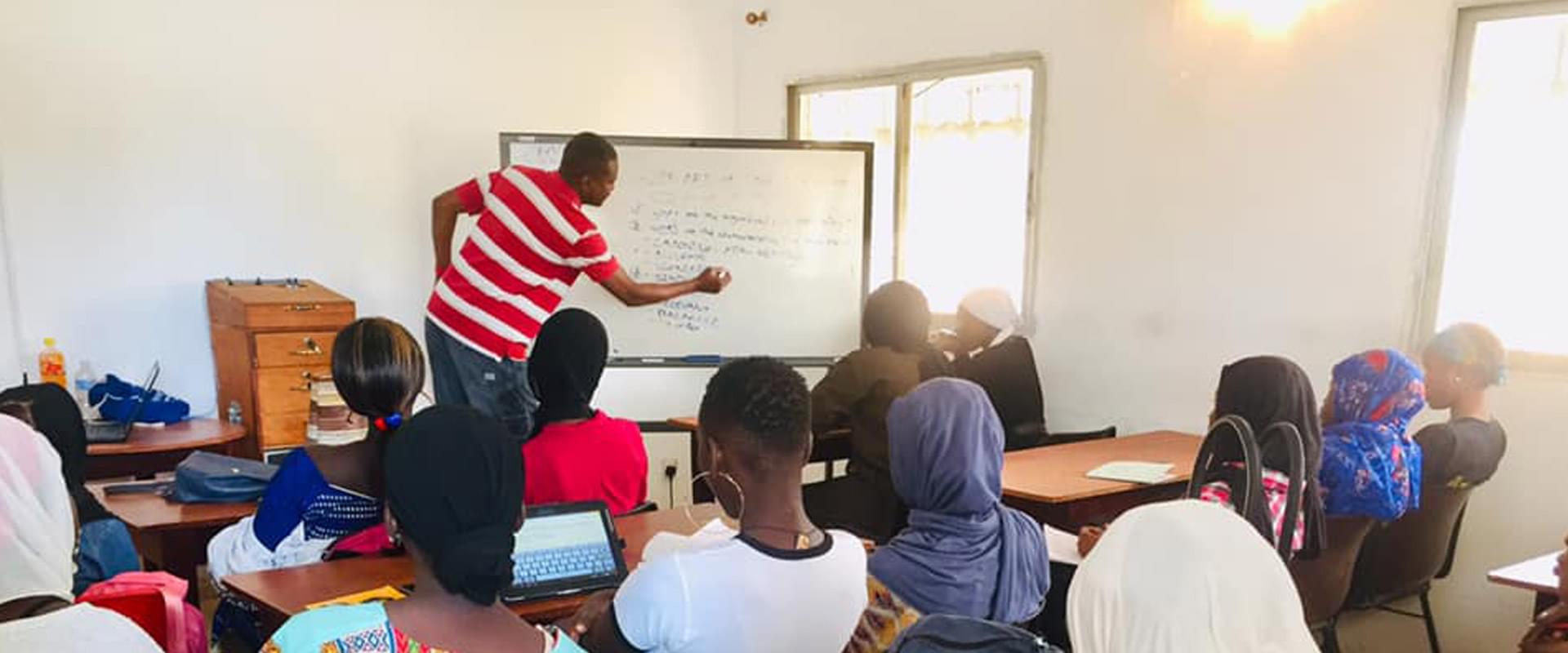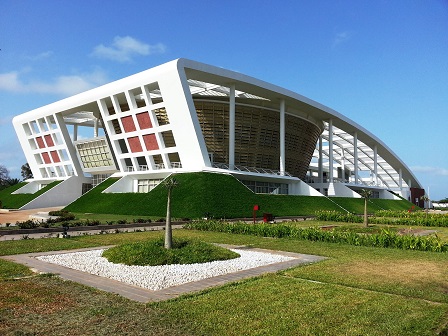
Mar 23, 2022 8:58 AM | Article By: Lenisa Gomez

NA building in Banjul
Voter turnout in presidential elections is always far too high than parliamentary elections in The Gambia. This is because of the significance, voters attached to voting in presidential, over parliamentary elections; despite the proximity and impacts of parliamentarians on the lives and livelihoods of the electorates through their oversight, legislative, representation, resource allocation, among other functions.
The Independent Electoral Commission statistics on the 2017 parliamentary election indicated that many voters did not turn out to vote in the election, compared to the 2016 presidential election.
The IEC database indicated that 379, 320 people cast their votes in the 2017 National Assembly election, compared to the 886, 578 Gambians who cast their votes in the 2016 presidential election.
The tally indicated a difference of more than a half a million voters (507, 258) people who voted in the 2016 presidential election did not vote in the 2017 National Assembly election.
Importance of voting in National Assembly elections

Polling officers vetting voters in the
2018 Local Gov't at a polling station in Farato
(Photo: Mustapha Ceesay)
Essa Njie, political science lecturer, University of the Gambia said one of the roles of the national assembly is to make law, while the executive implements and the judiciary interprets those laws.
‘”Not only is parliament responsible for law making but they are also responsible for budget allocation,” he said.
Njie stressed the importance of the National Assembly highlighting its duties such as approval of the budgets of institutions and the ratifications of treaties, among others.
“Gambians must realize that we need a competent national assembly that will ensure that the refunds that this government had promised in 2016 are brought back to life, making sure that there is a new constitution in place, making sure that there are new electoral laws in place,” he stated.
Essa urged people to take the NA elections seriously as the presidential elections in order to improve their lives and livelihoods.
“People must realize that in order to improve their lives and livelihood, in order to ensure that critical of development such as health , education ,agriculture and all those very important areas that are necessary to be improved, in order to ensure that their lives and livelihood are improve, it’s only through having an effective an efficient parliament,” he noted.
The university lecturer called on Gambians to participate in the democratic process that comes once every five years; citing the power of the parliamentarians.
“Elections are moments when the constitution gives us the power to determine or elect our political leaders. So we should not joke with it. Parliamentarians have powers to impeach a president, if he or she is behaving otherwise,” he urged.
The low voter turnout at parliamentary elections is due to the less significance that many voters, mainly none-elites rated the parliamentary elections as opposed to presidential elections, owing to their level of civic awareness.
National Council for Civic Education
In the Gambia, National Council for Civic Education (NCCE) is the legal body responsible for educating the public. The institution is expected to inform the private citizens their rights and constitution responsibilities in which voting is part of. Its role to enlighten the electorates on the importance of voting in parliamentary elections could increase the voter turnout in the 9th April election.
Asumana Ceesay, senior programme officer, NCCE said NA elections are equally important as the presidential elections in the lives of the citizens.
He said the government is divided into three arms, and of them is the legislature whose election is as important as the presidential elections.
“But the majority of people don’t know the importance of parliamentary elections. It’s even circulating on social media that they have already voted in the presidential election; there's no need for them to vote in the NA elections,” he said.
Given the status quo, there is a need to create awareness on the importance of NA elections, ahead of the April 9 election.
Mr. Ceesay highlighted that NCCE is encouraging all Gambians to go out and select their people genuinely parliamentarian in the April 9 elections, so they can be their representative in the National Assembly. He says the national assembly members will be there for the best interest of the public, they are there to represent their constituency and to represent the welfare of their people.
‘’ Recently we have started since the IEC has released the calendar of the National Assembly election. We just came from Basse. On the 22nd February 2022, we had 11 days of community sensitization in Basse,” he said.
The NCCE senior programme officer observed that not everyone has access to television or radio where electoral messages are broadcast; that’s why NCCE deemed it necessary to have face to face and radio sensitization sessions on the importance of parliamentary elections on the lives of the people.
“Voting is a constitutional right, the NCCE will continue to do its work by educating the public on their rights and responsibility,” he assured of his institution’s effort.
History of National Assembly Elections in The Gambia
In The Gambia, National Assembly elections began 75 years ago, (the colonial era), and 18 years before independence, according to records.
Hassoum Ceesay, historian and Director General, National Centre for Arts & Culture (NCAC) said the first type of elections the Gambia had was the legislative elections in 1947.
He recalled that Gambians first voted their representatives in parliament in 1947 and continued until 1972.
“So legislative elections are very important and Gambians are used to electing their own parliamentary representatives since 1947,” he acknowledged. “But from the statistics in the second Republic, meaning from 1997, the presidential election turnout is always higher than that of the legislative elections.”
According to research, in 1970 after a referendum, the Gambia became a Republic and a new Constitution (the 1970 Constitution) was adopted. The name of the legislature was changed from the House of Representative to Parliament. At that time, it comprised only thirty-two elected members, four head chiefs, the Attorney General and three nominated members. With the emergence of the 1997 Constitution, the Assembly now comprised fifty-three members and five nominated members. The Speaker and the Deputy-speaker are elected from the five members nominated by the president.
Section 87 of the 1997 Constitution made it a requirement for the establishment of a National Assembly, which shall come into existence following a general election four months after the date of election of president.
Comments (0)
23 Likes
Leave your thought here
Your email address will not be published. Required fields are marked *